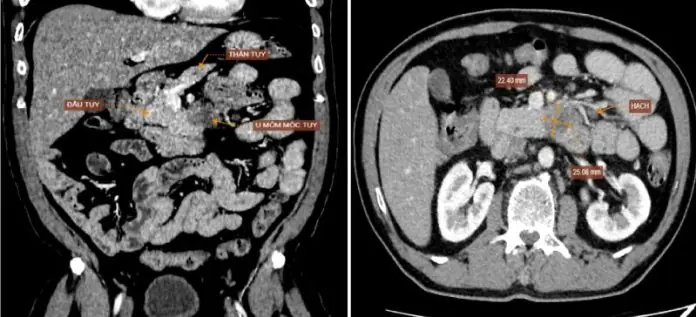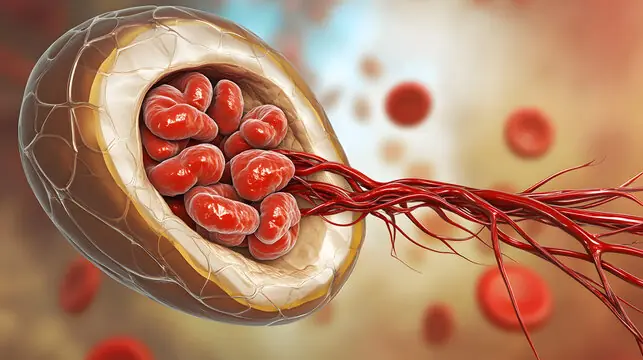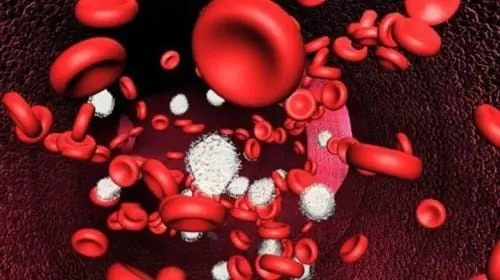
The Number of People with Thyroid Nodules Is Increasing! Doctors Repeatedly Emphasize: Eat Fewer Tomatoes and More of These 3 Foods
In recent years, medical statistics have shown a sharp rise in the number of people diagnosed with thyroid nodules. Although most nodules are benign, their increasing prevalence has become a growing public health concern. According to endocrinologists, this trend is influenced by factors such as environmental pollution, iodine imbalances, hormonal disorders, and especially modern dietary habits.
Thyroid nodules are abnormal growths or lumps in the thyroid gland—a small, butterfly-shaped gland located at the front of the neck. While many nodules are harmless and asymptomatic, some can cause difficulty swallowing, voice changes, or in rare cases, develop into thyroid cancer.
Doctors are now warning that dietary choices can directly affect thyroid health. Among the various foods we consume daily, tomatoes—although rich in nutrients—are surprisingly on the caution list for individuals with or at risk of thyroid nodules. Why?
Tomatoes are high in solanine, a naturally occurring alkaloid that, when consumed in excess, may interfere with thyroid hormone metabolism and increase inflammation in sensitive individuals. While eating tomatoes in moderation is generally safe, excessive daily intake—especially raw or unripe tomatoes—may worsen certain thyroid conditions.
Instead of over-consuming tomatoes, doctors strongly recommend incorporating the following three foods more frequently to support thyroid health and potentially reduce the risk of nodules:
1. Seaweed and Iodine-Rich Foods
Iodine is a crucial element in the production of thyroid hormones. A deficiency can lead to thyroid enlargement or nodules. Seaweed—such as kelp, nori, and wakame—is one of the best natural sources of iodine. However, moderation is key, as excessive iodine can also harm the thyroid. For those with iodine deficiency or living in iodine-poor regions, consuming small amounts of seaweed 2–3 times a week can significantly benefit thyroid function.
2. Brazil Nuts
Selenium is a powerful trace mineral that plays a vital role in protecting the thyroid gland from oxidative stress and regulating hormone production. Brazil nuts are one of the richest natural sources of selenium. Just 1–2 nuts a day can provide more than the recommended daily intake. Studies have shown that selenium supplementation may help reduce the size of thyroid nodules and improve thyroid antibody levels in autoimmune conditions like Hashimoto's thyroiditis.
3. Leafy Greens and Cruciferous Vegetables (in moderation)
Dark leafy greens like spinach, kale, and Swiss chard provide essential vitamins and antioxidants that support overall glandular health. Cruciferous vegetables such as broccoli, cauliflower, and Brussels sprouts also offer anti-inflammatory compounds and detoxifying properties. However, for people with existing thyroid issues, these vegetables should be cooked rather than eaten raw to reduce goitrogens—substances that may interfere with iodine uptake when consumed in large amounts.
In addition to diet, lifestyle also plays a key role. Reducing stress, avoiding unnecessary radiation exposure, getting regular exercise, and sleeping well all help maintain a healthy endocrine system. Periodic thyroid screening, especially for those with a family history of thyroid disorders, is also highly recommended.
In conclusion, as thyroid nodules become more common, awareness and prevention are more important than ever. While tomatoes may still be enjoyed occasionally, it’s essential to balance our diets with foods that nourish and protect the thyroid. By prioritizing nutrient-rich, anti-inflammatory foods and making conscious lifestyle choices, we can significantly reduce the risk of developing thyroid nodules and maintain long-term hormonal balance.
News in the same category


New Tiny Machine Removes Cholesterol from Arteries Without Surgery

Powerful Simulation Reveals How Cancer Progresses and Ultimately Causes Death

Three Family Members Diagnosed with Thyroid Nodules – The Mother Collapses: “I Thought Eating More of Those Two Things Prevented Cancer”

A Family of Four Siblings Diagnosed with Stomach Cancer – Doctor Shakes His Head: Two "Deadly" Common Habits Many People Share

A 49-Year-Old Man Dies of Brain Hemorrhage – Doctor Warns: No Matter How Hot It Gets, Don't Do These Things

England Has Officially Started To Give Out New Injections That Treat 15 Cancers

How to Fade Age Spots: Causes, Treatments, and Prevention That Actually Work

Early Warning Signs of Liver Damage — And How to Protect and Strengthen Your Liver Naturally

Two Itchy Areas on the Body May Signal Liver Cancer—Many Mistake It for an Allergy

More and More People Are Suffering from Visceral Fat! Doctor: 9 Foods That Help Reduce Visceral Fat – Eat Them Regularly

5 everyday drinks that can harm your liver like alcohol

Your Guide to Preparing for the Gynecologist: 10 Key Dos and Don’ts

A 6-year-old boy diagnosed with late-stage canc3r, his father regrets after doctors reveal the cause linked to a popular type of beverage

If Your Parent Shows These 4 Signs, They May Be Nearing the End of Life. Prepare Yourself for What’s to Come

Top 13 Signs That You May Have a Thyroid Disorder

What Can Your Urine Tell You About Your Health?

If You See Someone with Prominent Blue Veins, You Must Tell Them This — It Could Save Their Life

Cancer Cells Destroyed in 42 Days by a Glass of Juice: A Stunning Success That Has the World Celebrating
News Post

Discovered to Have One of the Deadliest Cancers After Just One Warning Sign

The Surprising Benefits of Drinking Turmeric Water at Night: 8 Reasons You Should Make It a Habit Today 🌙

Cloves, Ginger, and Lipton Tea: A Health-Boosting Trio Worth Gold

New Tiny Machine Removes Cholesterol from Arteries Without Surgery

Powerful Simulation Reveals How Cancer Progresses and Ultimately Causes Death

At My Husband’s Birthday Party, My Son Pointed and Said, 'That’s Her. The Same Skirt.'

My Husband Took Me on a Surprise Cruise — But When I Opened the Door, Everything Fell Apart

My Wife Found a Midnight Hobby – It Nearly Drove Our Neighbors Away

I Got Seated Next to My Husband’s Ex on a Flight – By the Time We Landed, My Marriage Was Over

One Day, I Saw a 'Just Had a Baby' Sticker on My Boyfriend's Car — But We Never Had a Baby

Never Throw Away Lemon Peels Again: 12 Unusual Ways to Use Them

How People Over 50 Can Supplement Fiber for Better Health

Unleash Your Inner Alpha: The Natural Nighttime Boost You Need

Stop Now! These 8 Pumpkin Seed Mistakes Trigger Irreversible Reactions in Your Body

The photograph of a little boy who became one of the most recognizable men today

Three Family Members Diagnosed with Thyroid Nodules – The Mother Collapses: “I Thought Eating More of Those Two Things Prevented Cancer”

A Family of Four Siblings Diagnosed with Stomach Cancer – Doctor Shakes His Head: Two "Deadly" Common Habits Many People Share

A 49-Year-Old Man Dies of Brain Hemorrhage – Doctor Warns: No Matter How Hot It Gets, Don't Do These Things

England Has Officially Started To Give Out New Injections That Treat 15 Cancers
